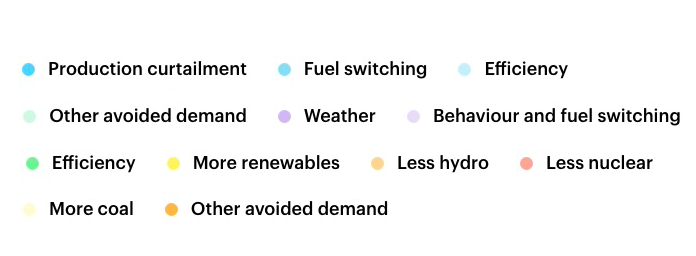Building a sustainable power system
Learning the lessons of the energy crisis
It is now more than two years since the global energy crisis began. The vulnerabilities of Europe’s historic reliance on fossil fuels have long since been exposed. European governments have no excuse to still be in emergency response mode.
Opting to rely on fossil fuels, Russian or otherwise, is neither economically or environmentally sustainable. It places Europe’s security in the hands of foreign regimes, and exposes households and businesses to volatile global markets. Urgent action is needed to transform Europe’s power system so that it is based fully on homegrown renewable energy. This is the only way to reduce energy bills, ensure permanent energy security, and prevent the climate emergency from deepening.
Beyond crisis mode
Supercharging Europe’s renewable energy momentum
After a painful 2022-23, Europe’s power system is in a much better place. Massive additions of solar and wind power coupled with a significant fall in power consumption has enabled us to reduce our reliance on coal and fossil gas, saving EU consumers €100bn between 2021 and 2023. But despite this progress, some governments are still pursuing more fossil fuels, wreaking havoc on our health and the climate, and going against the progress we’ve made.
“If we want to avert climate catastrophe, renewables are the only credible path forward.
Only renewables can safeguard our future, close the energy access gap, stabilise prices and ensure energy security.”
UN Secretary-General António Guterres
Actions countries are taking
European governments have had over two years to see the global energy crisis for what is: a fossil fuel crisis. So which countries are acting decisively to massively increase renewable power regeneration, and who is deepening the crisis by persisting with emergency coal and gas measures, or worse still, announcing new plans for fossil fuels?
How Europe navigated the energy crisis
In advance of its full-scale invasion of Ukraine, Russia began to cut its gas exports to Europe to trigger an energy crisis. Power outages at many European nuclear power plants and low hydropower output due to drought further depleted electricity supplies. Europe responded by adding record numbers of solar panels and heat pumps to its power system, generating more electricity and saving gas normally burned for heat.
Households and businesses made important energy savings, and an unusually mild winter helped reduce demand for power and heat. Still, some countries restarted coal-fired power plants (the most polluting power source of all) to bridge power supply gaps.
What impacted fossil gas demand in power, buildings and industry in the European Union, 2022 versus 2021?
Reduced demand for fossil gas
Added demand for fossil gas

Source: International Energy Agency


Source: International Energy Agency


